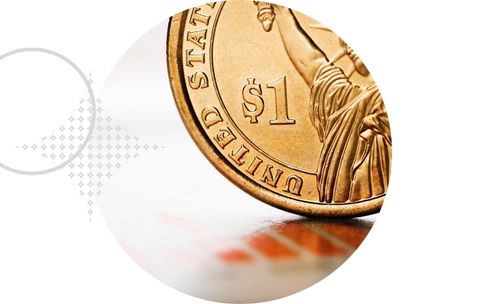What Influences Exchange Rates

Given that exchange rates are one of the leading factors in a country’s economic health level, it’s not surprising that they are one of the planet’s most analysed economic measures. Whether you’re someone who travels for pleasure, a regular FX investor, or an entrepreneur with business interests abroad, you know that even small exchange rate fluctuations can make a huge difference to your money, for better or for worse. While some, such as GBP and USD, remain relatively consistent, others seem to be on a rollercoaster ride. The big question for many is what influences exchange rates?
Factors that influence exchange rates
4 minute readThere are two types of exchange rates; namely fixed and floating. In times past, the value of fixed exchange rates was set using gold and silver. Nowadays, these fixed rates are managed by floating exchange rates. Floating exchange rates are influenced by the actions of banks and governments, and in many ways, the rates all come down to supply and demand.
Exchange rates determine how much one country’s currency is worth compared to another country’s currency, which influences everything from foreign investment opportunities to import-export balances. Taking a closer look at what factors influence exchange rates, you will find that several things come into play.
Inflation
Inflation is an important factor when it comes to what influences exchange rates. Inflation is a general increase in prices in an economy, and it’s usually shown in percentages. The lower the inflation rate, the greater the purchasing power of the country’s currency in relation to other currencies. For example, the EU inflation rate in December 2022 was 10.4%, while Hungary saw an 25% inflation rate. The Hungarian forint was one of Central Europe’s worst performing currencies, having lost 11% and 23% of its value against the Euro and the US dollar, respectively.
Interest rates
Interest rates are another important factor that influences exchange rates. There’s a powerful correlation between interest rates, inflation, and exchange rates. Governments and central banks can increase interest rates to influence exchange rates. In terms of foreign exchange, the higher a country’s interest rate, the more attractive its currency is to foreign investors, who frequently and rapidly move money from a currency with lower interest rates to one with higher interest rates, offering a fast return on investment.
Political stability
Political stability or instability is another factor that affects currency exchange rates. Foreign investors are more likely to invest in countries with lower levels of political turmoil, and boosted foreign investment means the domestic currency appreciates. Conversely, political instability means less foreign investment, which leads to the domestic currency depreciating.
Economic recession
Economic recession also plays a role in exchange rates. When a country enters a recession, its currency usually depreciates. This is usually accompanied by a flow of money from that country to countries with higher interest rates.
Government/public debt
A country’s exchange rate can also be influenced by its debt rating. If public sector projects require large-scale deficit financing, they can boost the domestic economy. However, large public deficits and government debt are off-putting for foreign investors, which can lead to the selling of bonds denominated in that country’s currency, resulting in the exchange rate falling. If the government needs to print money to pay parts of a large debt, it could lead to inflation, further denting the exchange rate.
Government intervention
Governments and central banks can stabilise a currency through interventions such as increasing or decreasing interest rates, creating new or modifying existing trade policies, and printing more money. For example, China tries to attract foreign investment and boost its exports by keeping the yuan/renminbi artificially low. This allows China to compete with neighbouring countries such as Japan and South Korea.
Stock markets
It’s impossible not to mention the stock markets when looking at what influences exchange rates. The stock market and FX are the world’s most financially traded markets. Traders usually look for correlations between the two when considering price predictions. When a domestic stock market rises, there is increased demand for the domestic currency and greater interest from foreign investors. However, the underperformance of a domestic stock market dents investor confidence, usually resulting in those investors withdrawing their funds or switching them to stronger currencies.
Confidence and speculation
Confidence, speculation, and various sentiments in financial markets can have a strong influence on foreign exchange rates. For example, if commodity price changes or political events could cause a currency to depreciate, speculators will sell now for a currency they think will appreciate – and vice versa. To expand on this with a further example, if the markets become aware of a possible interest rate increase in the Eurozone, we would be more likely to see the Euro’s valuation increase.
Sign up for an account with Moneycorp
Sign up for a personal account or a business account with Moneycorp and get competitive FX rates for more than 120 different currencies.


